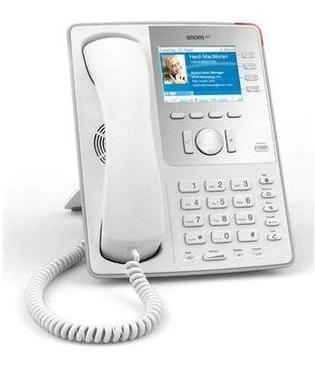As a business owner one of the toughest decisions you have to make is choosing the right business phone system provider for your business. The sheer number of service providers in the market today is both an advantage and a disadvantage. Advantage because the competition will lead to better prices and disadvantage because it may lead to confusion.
To avoid any mishaps in choosing the right business phone system provider for your business it is advisable to take a little more time in deciding and be guided by the following criteria:
Business phone type – The first decision that you have to make is what type of business phone system will be suited for your business. There is the traditional PBX and a hosted PBX however with the today’s market more and more businesses are opting for a hosted solution rather than a conventional platform. This is due to the savings and unparalleled features that the latter has. It is best that you weigh both options and decide based on the benefits and steer away from the lesser of the two.
After you have decided what system type will be best for you, then that’s the only time you can begin the hunt for a service provider.
System quality – One of your top priorities should be the system’s quality. This includes all actual servers and network that makes the phone system running. You can easily determine this by making a series of phone calls to the provider. If no single phone call drops out or faces jitters during the call then you can assume that their system is of quality however the best way to determine the quality is to ask around.
You can log on to forums and blogs that give unbiased evaluation which you can easily find over the internet.
Cost – Obviously one of the strongest dictating factors is the cost; make sure that you compare various quotes before you settle with a provider. However it doesn’t mean that it is wise to settle for the cheapest. Gauge the value for the money with what you will be getting for every buck that you spend with a certain provider.
Customer service – It is quite impossible that you find a business phone solution that will never face any downtime or problem so it is best that you choose a provider is able give provide a decent customer support. Again asking around and logging on to forums can help you determine the quality of support a service provider is giving.
Lock in contracts – It is best that you choose a provider that doesn’t oblige you to sign a lock in contract. This will allow you to switch telcos if you are not happy with their service and don’t you think that if they provide good service customers will stay with them even without a contract right?
In the end the decision all comes down to you, you can seek advice and suggestion but neve let anyone dictate you what to do because as a business owner you know what is best for your company.
To avoid any mishaps in choosing the right business phone system provider for your business it is advisable to take a little more time in deciding and be guided by the following criteria:
Business phone type – The first decision that you have to make is what type of business phone system will be suited for your business. There is the traditional PBX and a hosted PBX however with the today’s market more and more businesses are opting for a hosted solution rather than a conventional platform. This is due to the savings and unparalleled features that the latter has. It is best that you weigh both options and decide based on the benefits and steer away from the lesser of the two.
After you have decided what system type will be best for you, then that’s the only time you can begin the hunt for a service provider.
System quality – One of your top priorities should be the system’s quality. This includes all actual servers and network that makes the phone system running. You can easily determine this by making a series of phone calls to the provider. If no single phone call drops out or faces jitters during the call then you can assume that their system is of quality however the best way to determine the quality is to ask around.
You can log on to forums and blogs that give unbiased evaluation which you can easily find over the internet.
Cost – Obviously one of the strongest dictating factors is the cost; make sure that you compare various quotes before you settle with a provider. However it doesn’t mean that it is wise to settle for the cheapest. Gauge the value for the money with what you will be getting for every buck that you spend with a certain provider.
Customer service – It is quite impossible that you find a business phone solution that will never face any downtime or problem so it is best that you choose a provider is able give provide a decent customer support. Again asking around and logging on to forums can help you determine the quality of support a service provider is giving.
Lock in contracts – It is best that you choose a provider that doesn’t oblige you to sign a lock in contract. This will allow you to switch telcos if you are not happy with their service and don’t you think that if they provide good service customers will stay with them even without a contract right?
In the end the decision all comes down to you, you can seek advice and suggestion but neve let anyone dictate you what to do because as a business owner you know what is best for your company.










 RSS Feed
RSS Feed